Scott Nelson/Getty
Ali Mohammed Ali Abdelrahman was a militia leader known as “the devil on horseback.” The investigations of the International Criminal Court are tough to this day. And the conflict in Darfur continues.
The 72-year-old accused, who had to appear before the International Criminal Court on Tuesday, did not look like a warlord. He looked more like an aging professor with thick-rimmed intellectual glasses and graying hair.
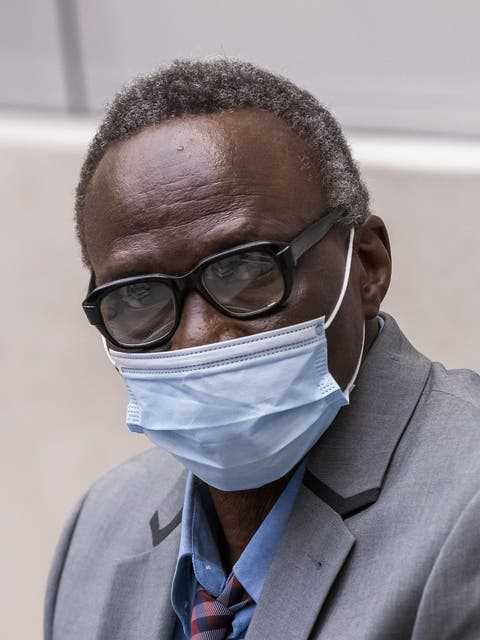
Ali Mohammed Ali Abdelrahman in court in The Hague. (Recorded at a preliminary hearing in May 2021.)
But Ali Mohammed Ali Abdelrahman is said to have taken a “strange joy” from being seen as the ruthless leader of a militia that has killed tens of thousands of people. So said Karim Khan, the chief prosecutor at the International Criminal Court (ICC), at the opening of the first trial of an alleged mastermind in a conflict many have described as genocide.
Abdelrahman was a key leader of the Janjaweed, a militia that worked with the Sudanese army to crush a rebellion in western Darfur province two decades ago. The militias raided villages, often at dawn, and literally razed them to the ground. Aerial photos of villages with their round huts reduced to silhouettes of ash sparked horror at a conflict unfolding in a corner of the world few outside of Africa had heard of.
The militias were often on camels and horses, which is why they were also called “devils on horseback”. Meanwhile, the Sudanese army bombed rebels and civilians from planes and helicopters. Over 200,000 people were killed and over 2 million displaced. Because mostly Arab militias and government troops were fighting a mostly black African region, the conflict also had an ethnic dimension. Among other things, the American government spoke of genocide.
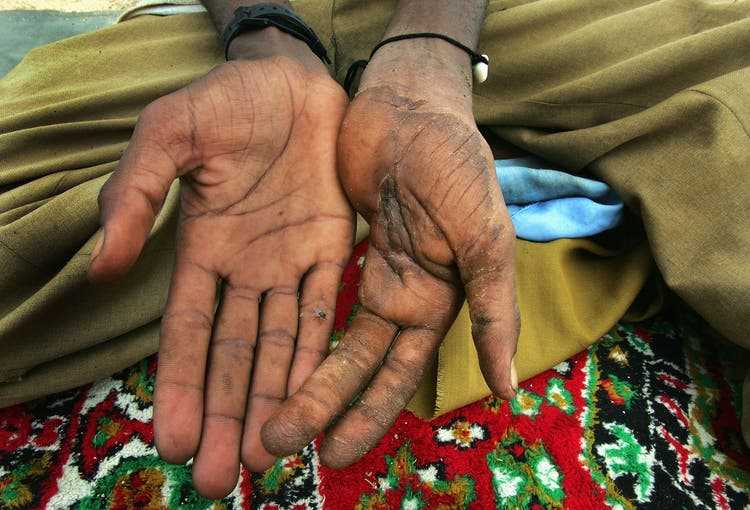
A man who lost two fingers in a Janjaweed attack shows his hands in a 2004 footage.
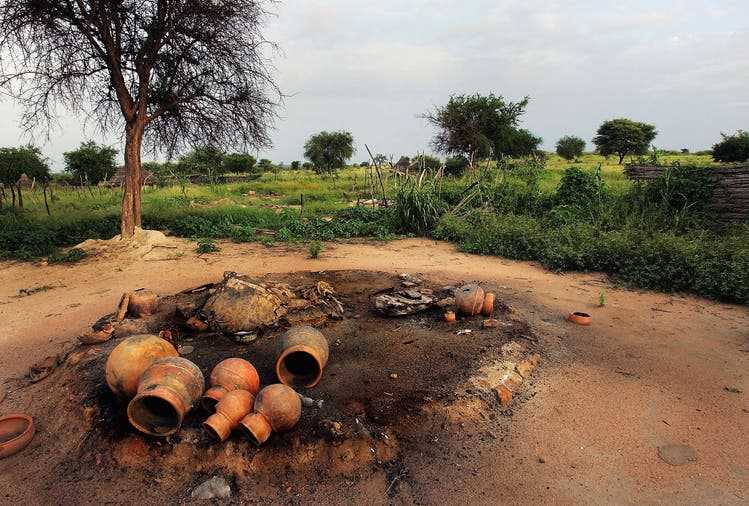
Remains of a village attacked by the Janjaweed in 2004.
Bashir escaped the warrant
The list of charges against Abdelrahman, which was read out in The Hague on Tuesday, was long. It comprises 31 points, including murder, rape, looting and attacks on the civilian population. The indictment holds Abdelrahman directly responsible for attacks on four villages in 2003 and 2004, the most brutal phase of the conflict. His militias are said to have killed over 300 people and displaced around 40,000 civilians.
At the trial, which is likely to last several years, 142 alleged victims will also have their say. Abdelrahman pleaded not guilty on Tuesday.
For the ICC, the trial against the former militia leader is a stage victory in a long and tough process. Sudan is not a member of the ICC, which is why the court cannot initiate investigations against actors in Sudan itself. In 2005, however, he transferred UN Security Council the alleged crimes in Darfur to the ICC for review, whereupon the court became active. In March 2009, it issued an arrest warrant for then-President Omar al-Bashir. In addition to Bashir, the ICC has indicted three other Sudanese – a former defense minister, a former governor and a rebel leader. While the two politicians are in custody in Sudan, the rebel leader is on the run.
Hardly any trial has shown the impotence of the ICC more clearly than the Darfur investigation. The court relies on the cooperation of states in order to be able to enforce arrest warrants. Bashir, however, traveled several times to allied countries without being bothered. He presented the ICC as a racist instrument of the West, which primarily acts against Africans. The argument caught on in many places across the continent.
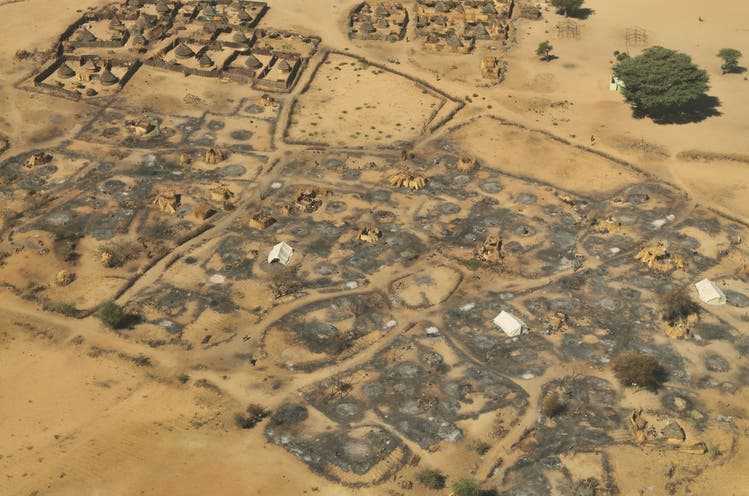
A burned village in Darfur.
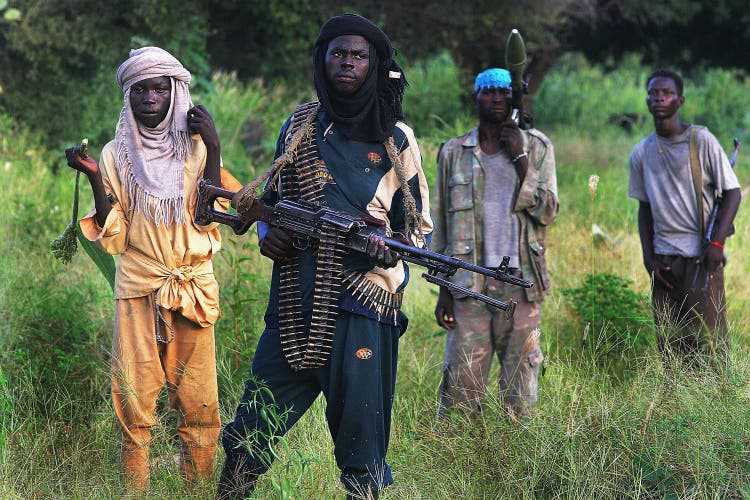
The other side of the conflict: rebels from the Justice and Equality Movement (JEM) fought against the Sudanese army and militias.
The fear of the powerful in Sudan of the ICC
Abdelrahman surrendered in 2020 in a remote part of the Central African Republic, where he appeared to have led an armed mercenary group. The year before, Bashir, who had ruled Sudan dictatorially for three decades, had been brought down by mass protests. Bashir has been in prison ever since. The interim government promised to cooperate with the ICC. In June 2021, the Council of Ministers approved the transfer of the three accused detained in Sudan to The Hague. That hasn’t happened yet.
The main reason Sudan is not extraditing the accused is that the country’s two most powerful men fear being implicated in the process. Army chief Abdelfatah Burhan is said to have played a central role in the army’s crimes in Darfur. General Mohammed Hamdan Daglo, better known as Hemeti, leads the approximately 50,000-strong Rapid Support Forces – these emerged from the Janjaweed militias. Burhan and Hemeti staged a coup against the interim government in late October 2021 and have faced ongoing mass protests in which security forces have killed nearly 100 protesters.
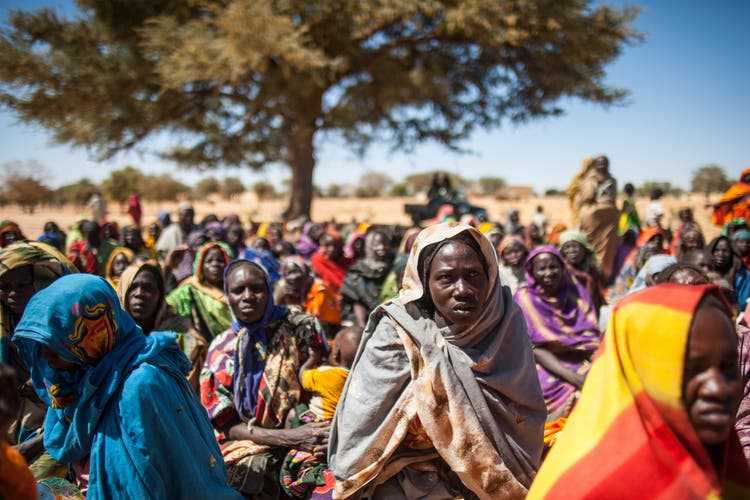
1.6 million people are still internally displaced in Darfur. The picture shows refugee women in the village of Silea in 2008.
Meanwhile, the Darfur conflict is not over. According to the UN, 1.6 million people are still internally displaced in the region. The mandate of the joint UN and African Union peacekeeping forces, which were stationed in the region from 2007, expired at the end of 2020. Since then, there have been several serious outbreaks of violence that have killed hundreds and displaced tens of thousands.
